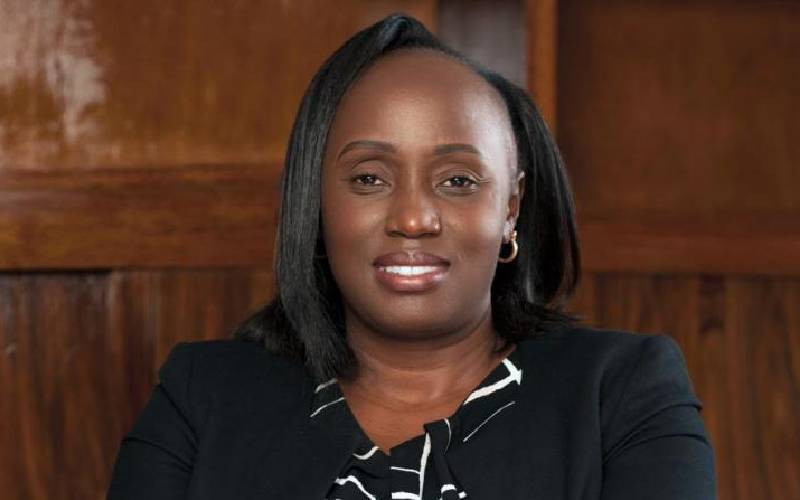By Morris Aron
Few urbanites would fall for the Nigerian fraud type, especially with their signature e-mail that goes like this: "My father left me $40 million in his will, but I have to bribe government officials to get it out."
Or better still, that “the Nigerian National Petroleum Company has discovered oil, and we as officials of that company want to acquire the land, but we need a Kenyan front man to purchase it first for us.”
Take for example, the Salami attack that was recently discovered. With this form of fraud, a fraudster installs a system that allows him to deduct small amounts like Sh1.99 per month from the account of all customers of a bank on to his account.
The complexity of technology-based crime is baffling even to those charged with the responsibility of detecting and preventing it. There is a recommendation that judges handling these kinds of fraud cases be trained on their complexity.
Fraud experts are warning that in the coming years, fraudster tricks are bound to get a little trickier and more in frequency, especially for any form of fraud that relies on technology.
“Technology, especially for information, is changing everyday and each generation is more savvy than the previous one,” said Jimmy Mwithi, chair of the Kenya chapter of the Association of Certified Fraud Examiners (ACFE-K).
“Also, the level of innovation where financial institutions are using technology to reach customers coupled with the landing of fibre optic cable significantly increased exposure of these institutions,” he told Financial Journal.
Statistics from the BFID report indicates that apart from transfers — ETF, RTGS and Swift — card (debit and credit) fraud, identity theft and forgery had the highest incidences rate and involved the most number of people.
Recovered amounts
Though the amounts involved were not as big as the other fraud categories, the percentage of amounts recovered after a fraud incidence was the least.
In the first half of the year, the report says, over Sh31 million was lost due to card fraud.
Of that amount, only Sh135,000 was recovered by August. Close to Sh6 billion was lost due to forgery fraud and only Sh1.6 million recovered. Central Bank of Kenya’s latest bank supervision report indicates that commercial banks are losing an average of Sh100 million to fraudsters every month.
Card theft, information skimming (insertion of electronic devices in ATM machines to capture customers’ personal data), compromised PINs, vandalism and cash trapping are top on the list of the most common forms of banking sector-related cybercrime.
The emerging trend, analysts say, makes technology or cyber-based fraud one of the hardest to detect and prevent.
“As the economy grows, one expects such incidences to increase,” said John Wanyela, Kenya Bankers Association chairman. “We constantly review our systems.”
In the past two years, banks have invested more than Sh20 billion in security solutions, a deliberate initiative aimed at safeguarding customers from cyber attacks mainly targeting new product lines such as online banking, card-related businesses and e-commerce channels that may lead to loss of money.
Equity Bank, the biggest financial institution by customer base, recently signed a deal with a Belgian business partner EMV (Europay-Mastercard-VISA)for a card management system that speeds up transaction points to curb fraud.
Similar initiatives have also been taken by StanChart, Barclays, Kenya Commercial Bank just to mention but a few.
But even as the challenge in dealing with all forms of fraud, especially technology and cyber driven continue to haunt all sectors of the economy, experts say focus may need to shift to a broader approach of tackling the vice.
 The Standard Group Plc is a multi-media organization with investments in media
platforms spanning newspaper print operations, television, radio broadcasting,
digital and online services. The Standard Group is recognized as a leading
multi-media house in Kenya with a key influence in matters of national and
international interest.
The Standard Group Plc is a multi-media organization with investments in media
platforms spanning newspaper print operations, television, radio broadcasting,
digital and online services. The Standard Group is recognized as a leading
multi-media house in Kenya with a key influence in matters of national and
international interest.
 The Standard Group Plc is a multi-media organization with investments in media
platforms spanning newspaper print operations, television, radio broadcasting,
digital and online services. The Standard Group is recognized as a leading
multi-media house in Kenya with a key influence in matters of national and
international interest.
The Standard Group Plc is a multi-media organization with investments in media
platforms spanning newspaper print operations, television, radio broadcasting,
digital and online services. The Standard Group is recognized as a leading
multi-media house in Kenya with a key influence in matters of national and
international interest.









